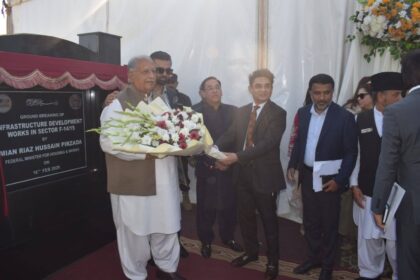The DOPASI Foundation convened a media roundtable in Islamabad to engage senior journalists and promote awareness about the human papillomavirus (HPV) vaccine ahead of Pakistan’s inaugural national vaccination campaign. The event highlighted the media’s crucial role in countering myths and fostering accurate public understanding as Pakistan prepares to launch the HPV vaccine nationally, targeting millions of young girls at risk of cervical cancer.
The session offered detailed insights into the upcoming HPV vaccination drive, explaining its health benefits and providing ethical guidelines for journalists reporting on the subject. Experts emphasized the need to dispel misinformation and communicate the vaccine’s safety and effectiveness to the public, especially in a country where over 73 million women are at risk of cervical cancer.
Huma Khawar, a development journalist, pointed out the importance of responsible journalism in debunking myths related to the HPV vaccine. She noted the urgency given the large at-risk population in Pakistan and stressed that the media has the power to shape public perception.
Dr. Rozina Khalid, HPV Vaccine Consultant at the World Health Organization, highlighted the vaccine’s development through years of scientific research and international cooperation. She described Pakistan’s decision to integrate the HPV vaccine into its routine immunization program as a significant step toward protecting future generations.
Adding a national perspective, Dr. Saima Zubair of the Society of Obstetricians and Gynecologists of Pakistan called attention to the central role women’s health plays in the country’s progress. She noted cervical cancer is the second most common cancer among Pakistani women and said the introduction of the HPV vaccine is urgently needed.
From a local rollout perspective, Dr. Syeda Rashida Batool, District Health Officer Islamabad, praised the DOPASI Foundation’s efforts to involve journalists in the awareness campaign. She stressed that media support would be essential to reach communities effectively and ensure the campaign’s success.
Kinz ul Eman, CEO of DOPASI Foundation, spoke about the crucial role of community organizations in mobilizing families, engaging stakeholders, and building public trust around the HPV vaccine. She highlighted that grassroots awareness and collaboration are necessary for the campaign to realize its full impact.
Journalists who attended the meeting appreciated the initiative, describing it as insightful and timely. They pledged to report responsibly and support efforts to raise awareness about HPV vaccination.
With this campaign, Pakistan will become the 150th country worldwide to introduce the HPV vaccine nationally. The drive will initially target girls aged 9 to 14 across regions including Sindh, Punjab, Azad Jammu & Kashmir, and Islamabad, before being incorporated into the country’s routine immunization schedule.











